All the surfaces shown in figure are assumed to be frictionless. The block of mass m slides on the prism which in turn slides backward on the horizontal surface. Find the acceleration of the smaller block with respect to the prism.
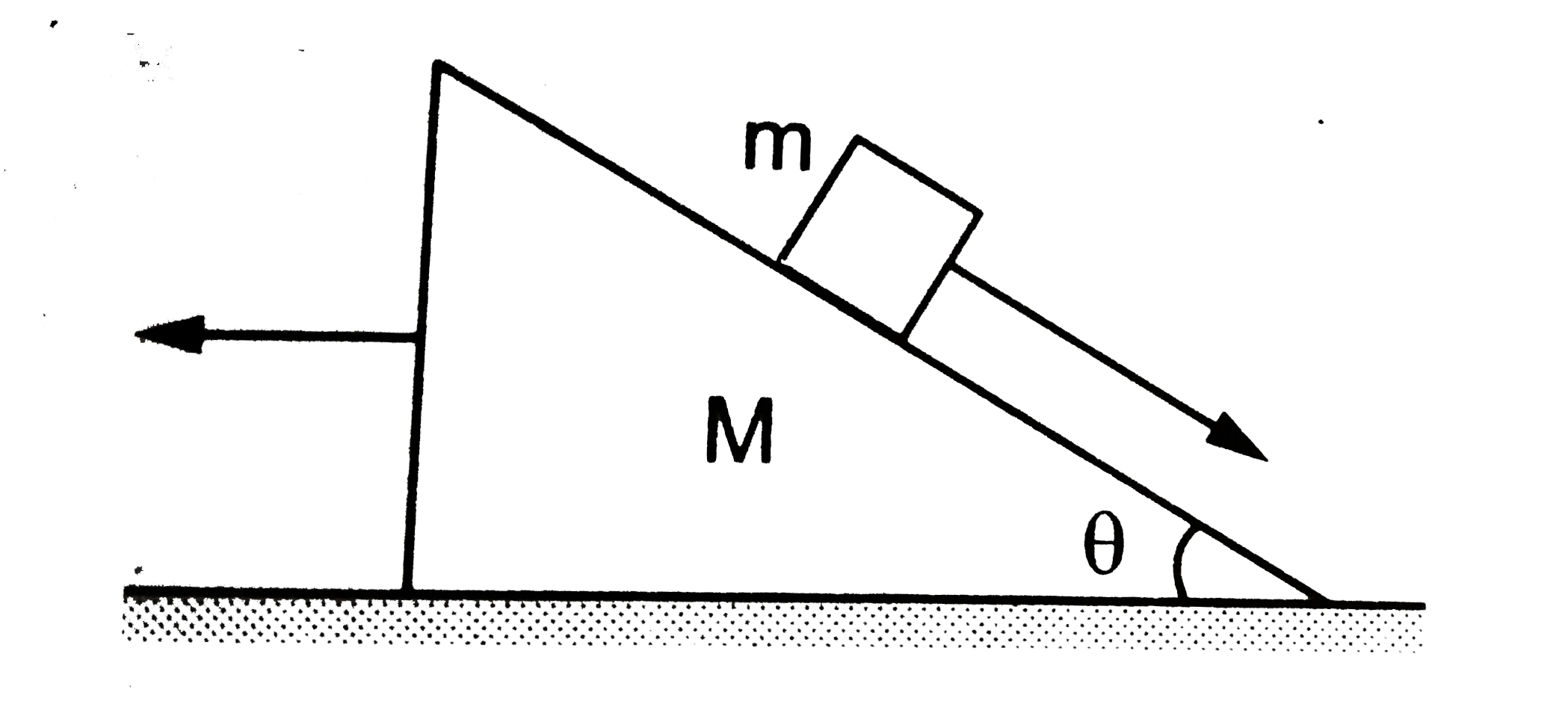 Solution in Tamil
Solution in Tamil
Let the acceleration of the prism be a0 in the backward direction. Consider the motion of the smaller block fro the frame of the prism.
The force on the block are
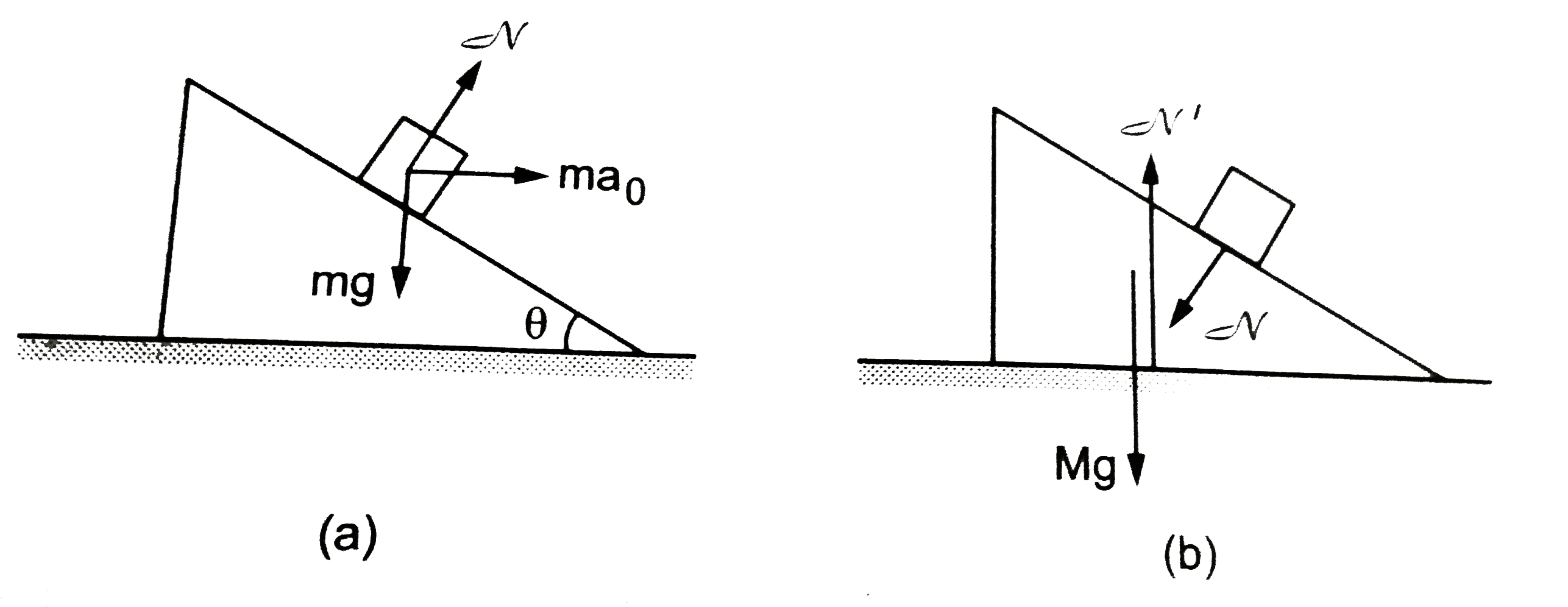
i. N normal force,
mg downward (gravity)
ma0 forward (psuedo)<br><imga≤ocr_imageload∈g=lazysrc=https://d10lpgp6xz60nq.cloudfront.net/physics_images/HCV_VOL1_C05_S01_016_S02.pngwh=80%sty≤=background:white;><br>Theblockslsdownthepla≠.compo≠ntsoftheforcesparal≤l→the∈cl∈egive<br>ma_0costheta+mg sintheta=ma<br>or,a=a_0costheta+g sin theta.........i<br>Compo≠ntsoftehforceperpendica––r→the∈cl∈egive<br>N +ma_0sintheta=mg costheta.........ii<br>Nonconsrthemotionoftheprismomthelabame.Nopseudoforceis≠ededastheameusedis∈ertial.Theforcesareure16b<br>i.Mgdownward,<br>ii.N∥a∥l→the∈cl∈e(bytheblock)<br>N upward (by the horizontal surface).
Horizontal components give,
Nsinθ=Ma0or,NMa0sinθ ..............iii
Putting in ii.
Ma0sinθ+ma0sinθ=cosθ
or, a0=mgsinθcosθM+msin2θ
From i. a=mgsinθcos2θM+msin2θ+gsinθ
=(M+m)gsinθM+msin2θ
Topper's Solved these Questions
- NEWTON'S LAWS OF MOTIONBOOK - HC VERMACHAPTER - NEWTON'S LAWS OF MOTIONEXERCISE - Questions for short Answer
17 Videos
- NEWTON'S LAWS OF MOTIONBOOK - HC VERMACHAPTER - NEWTON'S LAWS OF MOTIONEXERCISE - Objective -1
14 Videos
- NEWTON'S LAWS OF MOTIONBOOK - HC VERMACHAPTER - NEWTON'S LAWS OF MOTIONEXERCISE - Exercises
42 Videos
- LAWS OF THERMODYNAMICSBOOK - HC VERMACHAPTER - LAWS OF THERMODYNAMICSEXERCISE - Short Answer
14 Videos
- PHYSICS AND MATHEMATICSBOOK - HC VERMACHAPTER - PHYSICS AND MATHEMATICSEXERCISE - Exercises
34 Videos
Similar Questions
If the tension in the cable supporting an elevator is equal to the weight of the elevator, the elevator may be
View SolutionA block of 2 kg is suspended from the ceiling through a massless spring of spring constant k=100 N/m. What is the elongation of the spring? If another 1 kg is added to the block, what would be the further elongation?
View SolutionA block of mass 2 kg placed on a long frictionless horizontal table is pulled horizontally by a constant foerce F. It is found to move 10 m in the first two seconds. Find the magnitude of F.
View SolutionShould the internal energy of a system necessarily increase if heat is added to it?
View SolutionA vector →A makes an angle of 20∘and→B makes an angle of 110∘ with the X-axis. The magnitude of these vectors are 3 m and 4 m respectively.Find the resultant
View Solutionfind the acceleration of the block of mass M in the situation shown in figure. All the surfaces are frictionless and the pulleys and the string are light.
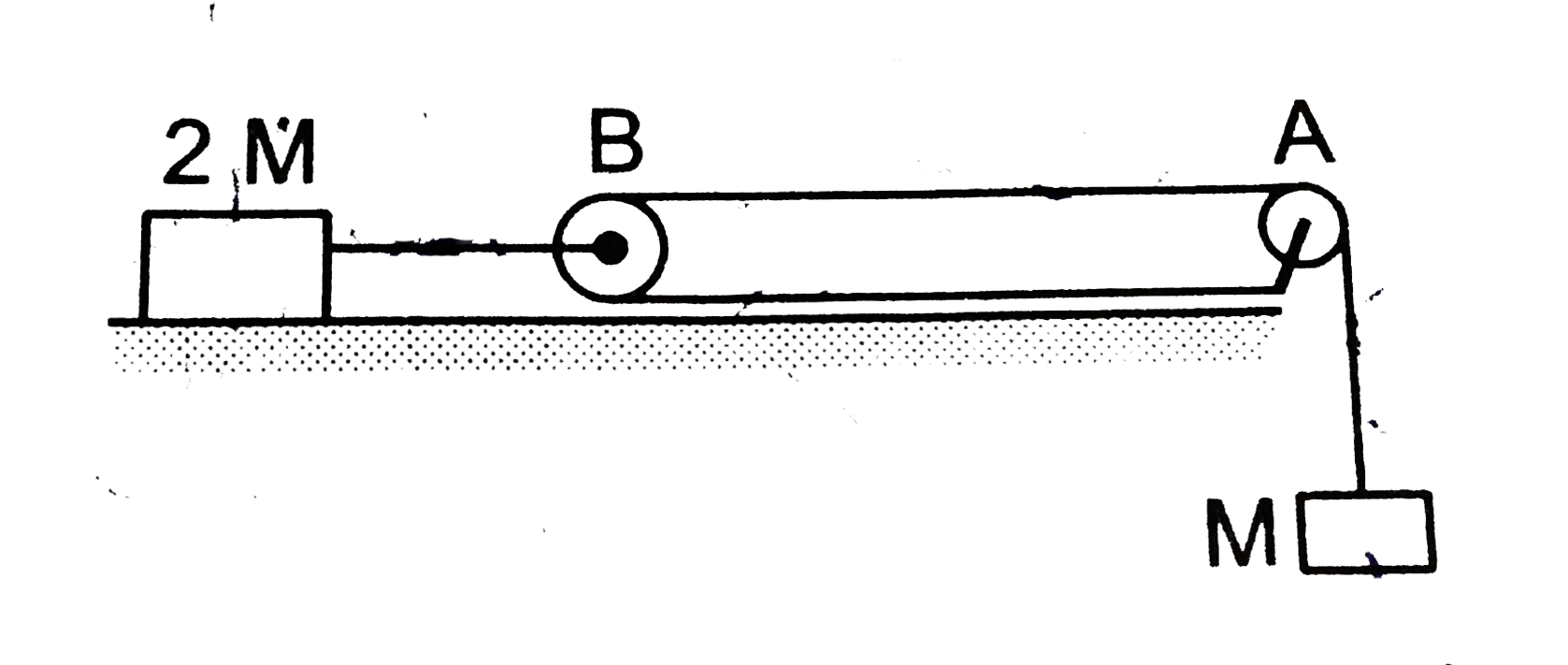
View SolutionFigure shows a small block of mass m which is started with a speed v on the horizontal part of the bigger block of mas m placed on a horizontal floor. The curved part of the surface shown is semicircular. All the surfaces are frictionless. Find the speed of the bigger block when the smaller block reaches the point A of the surface.
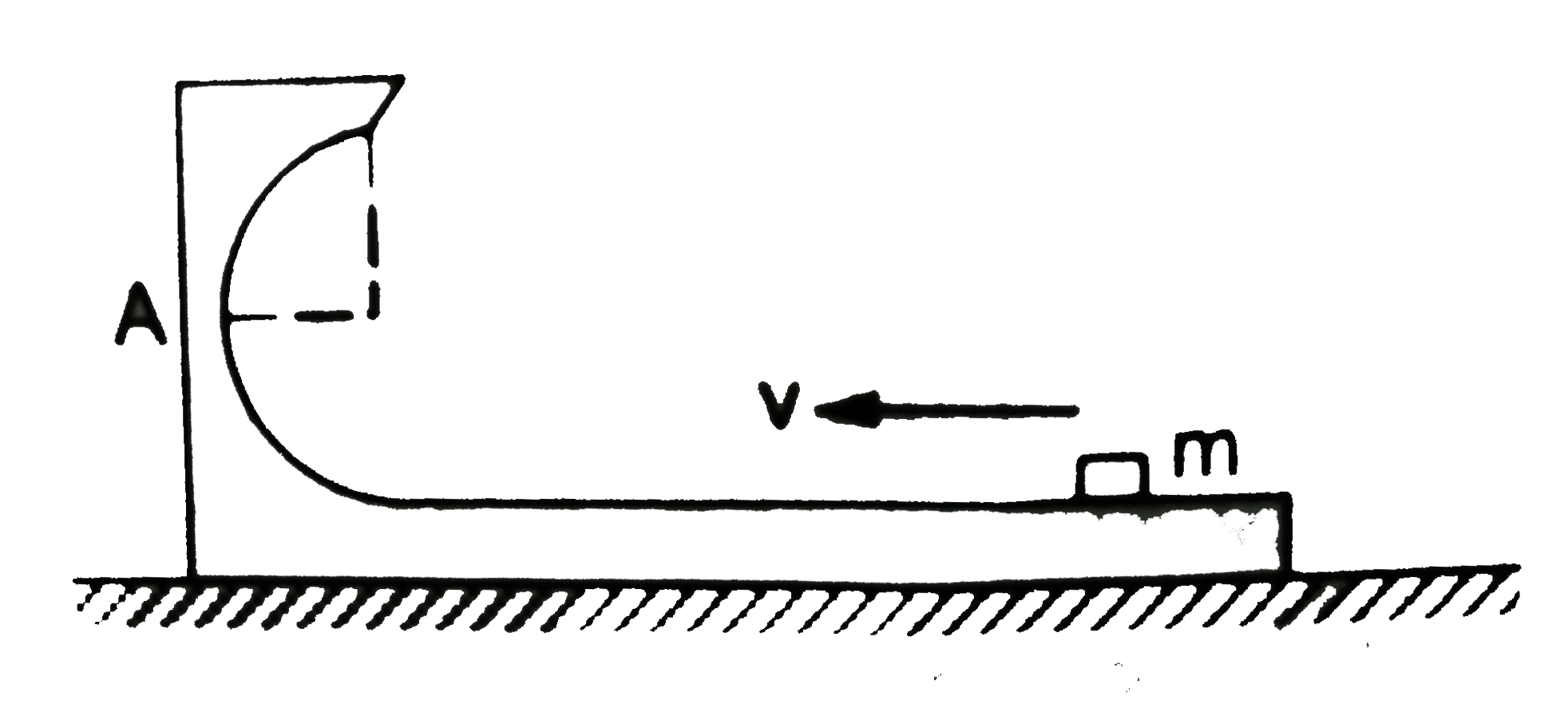
View SolutionA block of mas m is placed on a triangular block of mas m, which in tunis placed on a horizontal surface as shown in figure. Assuming frictionless surfaces find the velocity of the triangular block when the smaller block reaches the bottom end.
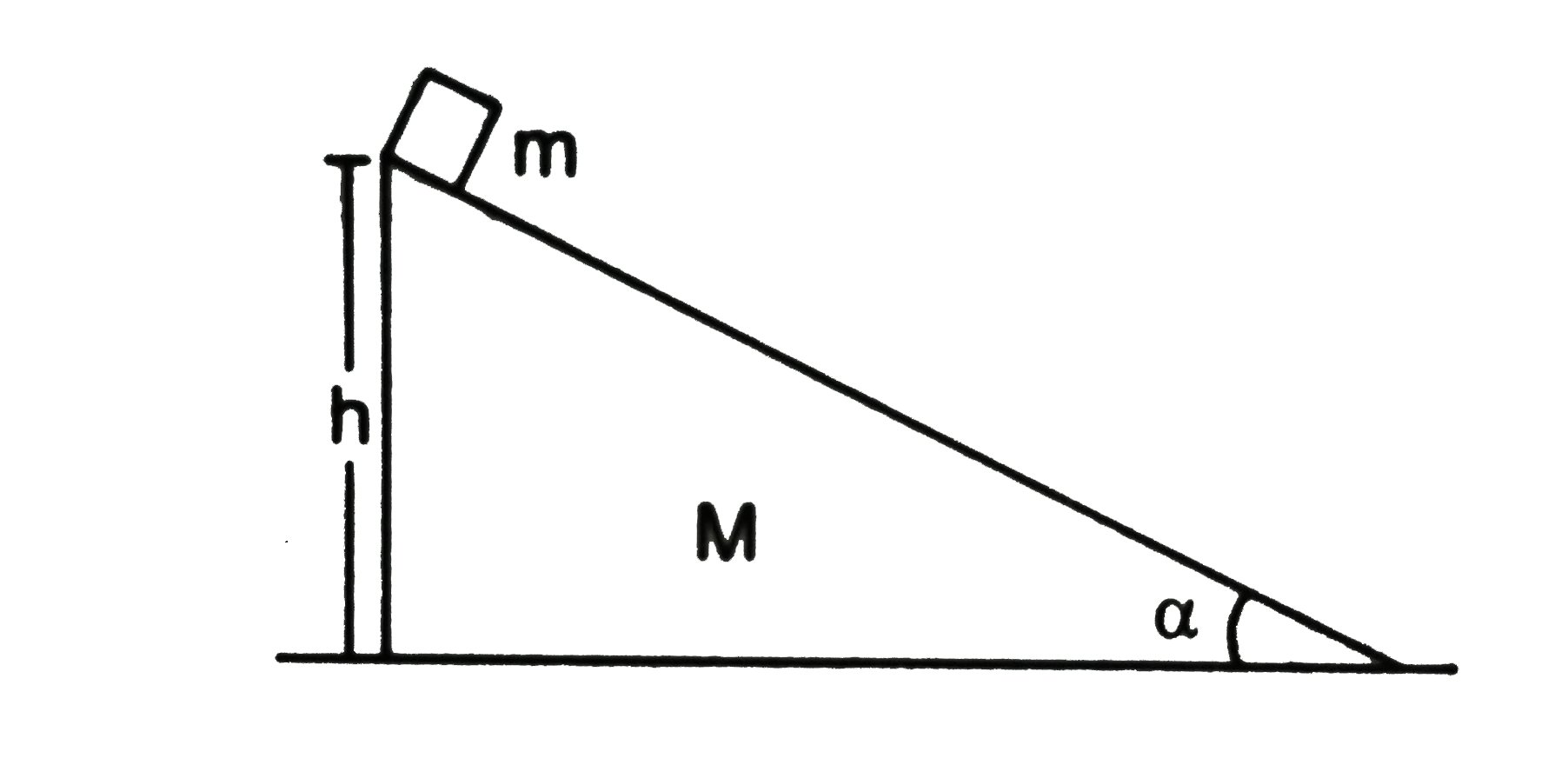
View SolutionFind the acceleration of the block of mass M in the situation shown in figure. All the surfaces are frictionless.
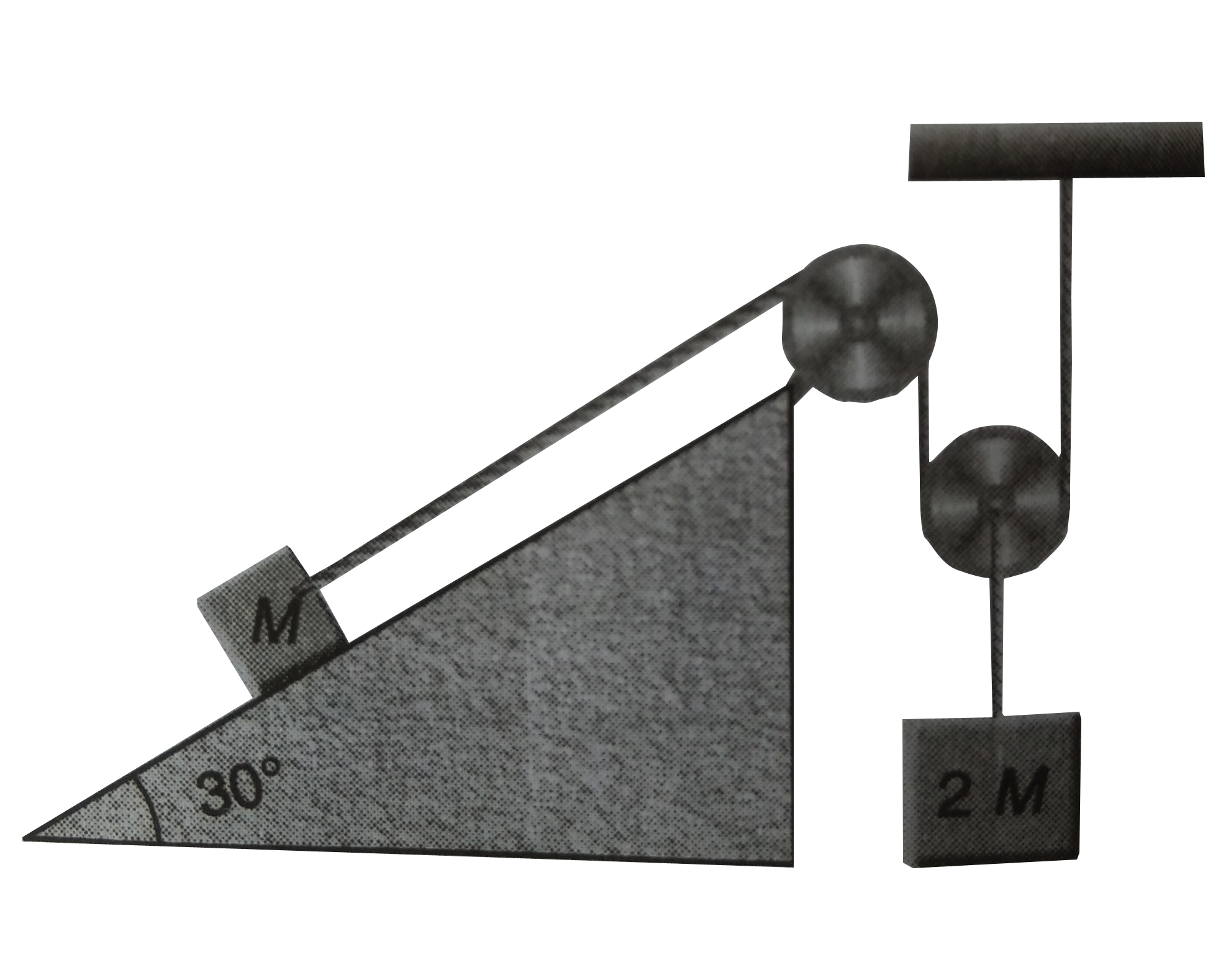
View SolutionA small block slides with velocity 0.5sqrt(gr) on the horizontal frictionless surface as shown in the figure. The block leaves the surface at point C . Calculate angle theta in the figure.
View SolutionAssuming all the surfaces to be smooth, find the acceleration of the triangular block of mass M when the block of mass m slides on it.
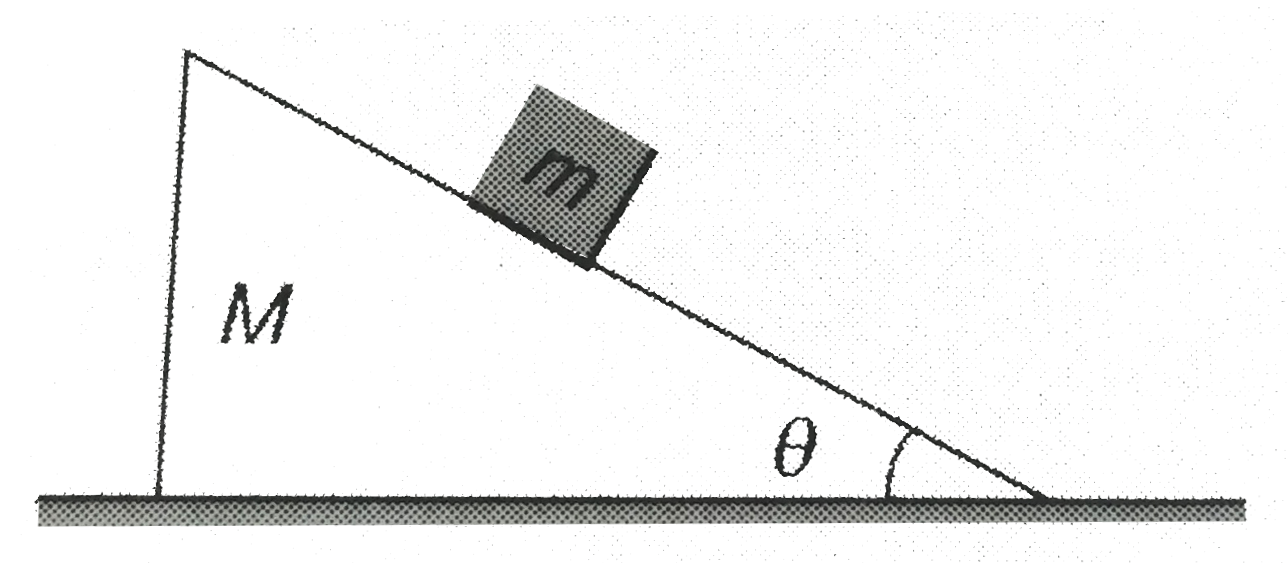
View SolutionAssuming all the surface to be frictionless. The smaller block m is moving horizontally with acceleration a and vertically downwards with acceleration a. Then magnitude of net acceleration of smaller block m with respect to ground
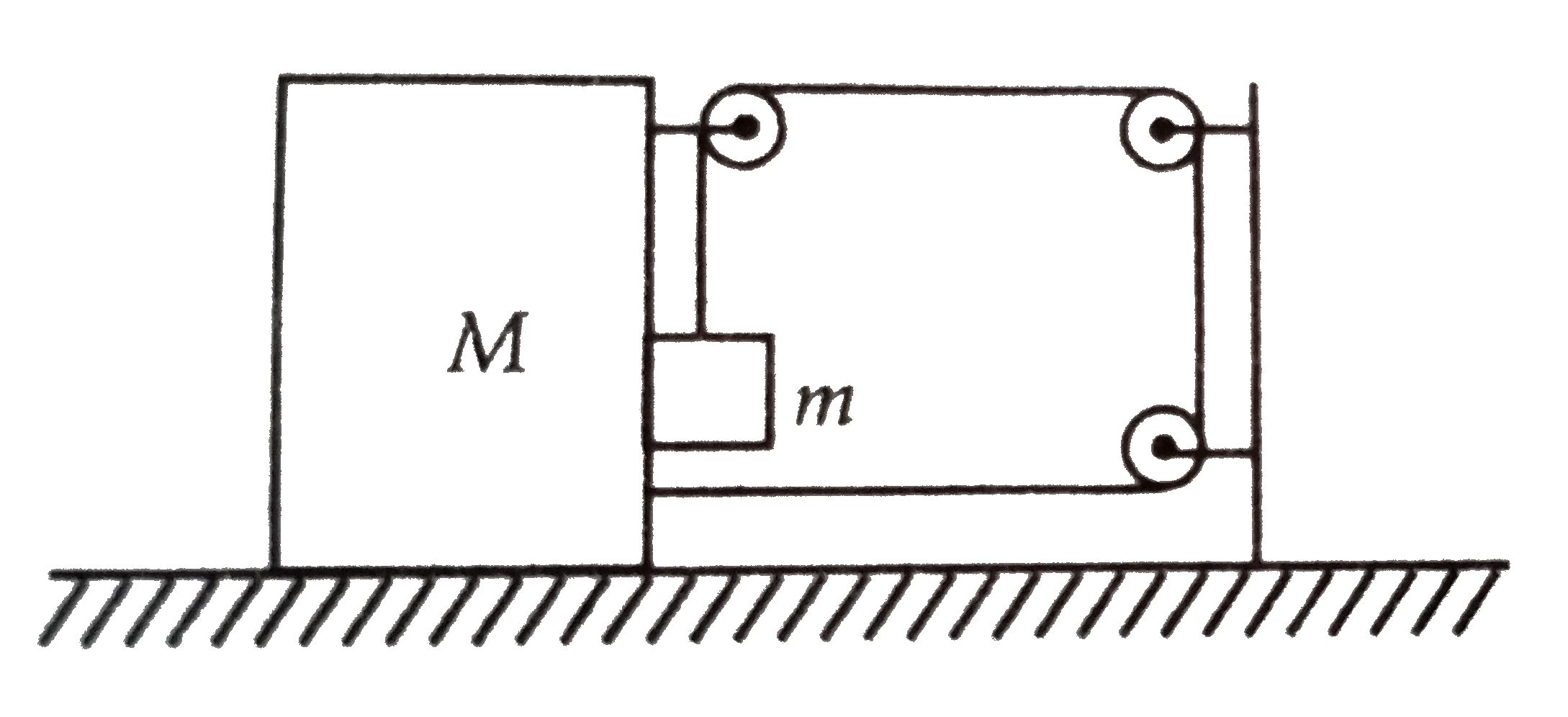
View SolutionFigure shows a block of mass 2m sliding on a block of mass m. Find the acceleration of each block . ( All surface are smooth )
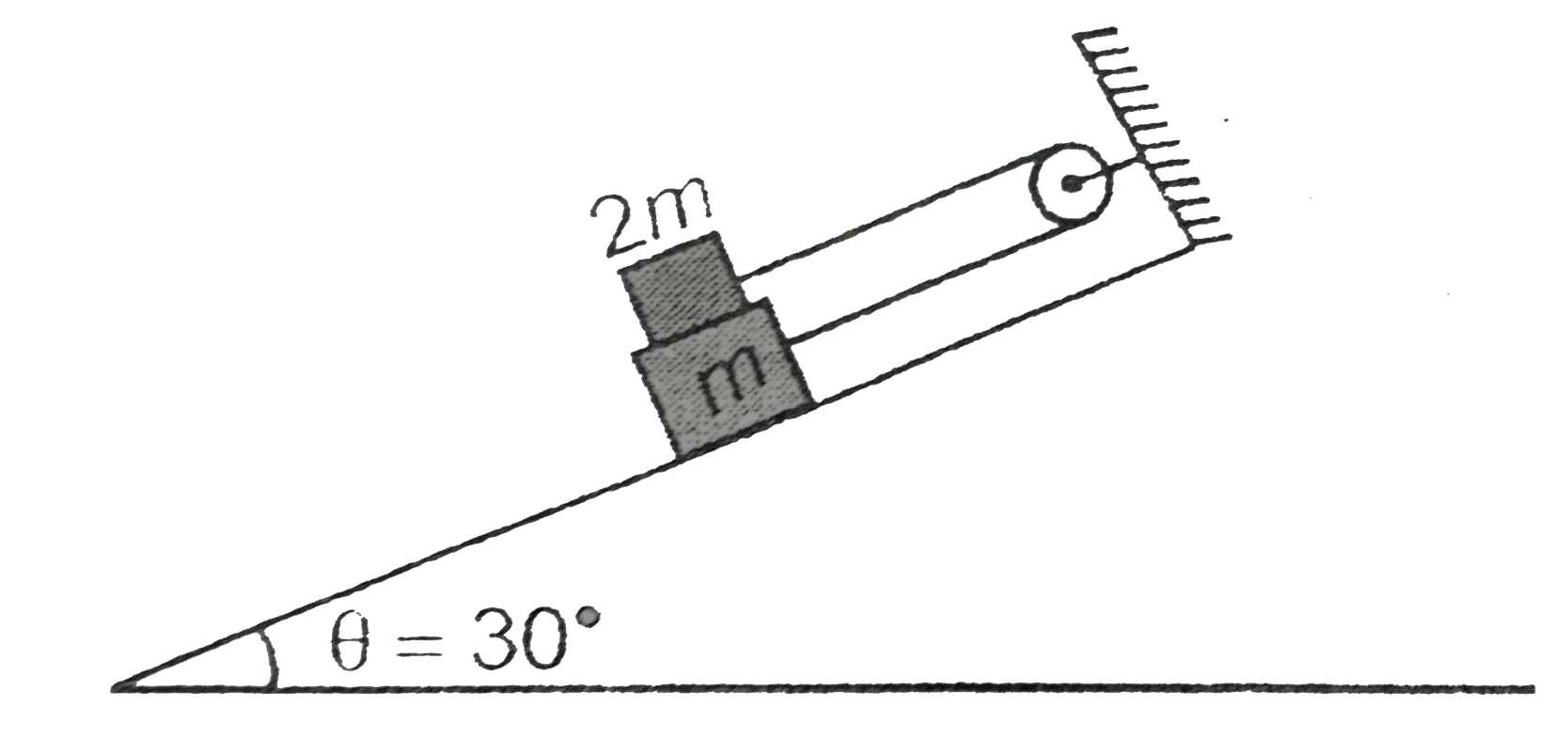
View SolutionA prism of mass M is placed on a horizontal surface. A block of mass m slides on the prism, which in tum slides on the horizontal surface. Assuming all surfaces to be frictionless, find the acceleration of block with respect to prism.
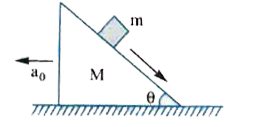
View SolutionAssuming all the surface to be frictionless, acceleration of the block C shown in the figure is :
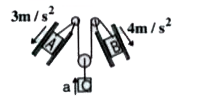
View SolutionFigure shows a small block of mass m which is started with a speed v on the horizontal part of the bigger block of mas m placed on a horizontal floor. The curved part of the surface shown is semicircular. All the surfaces are frictionless. Find the speed of the bigger block when the smaller block reaches the point A of the surface.

View Solution